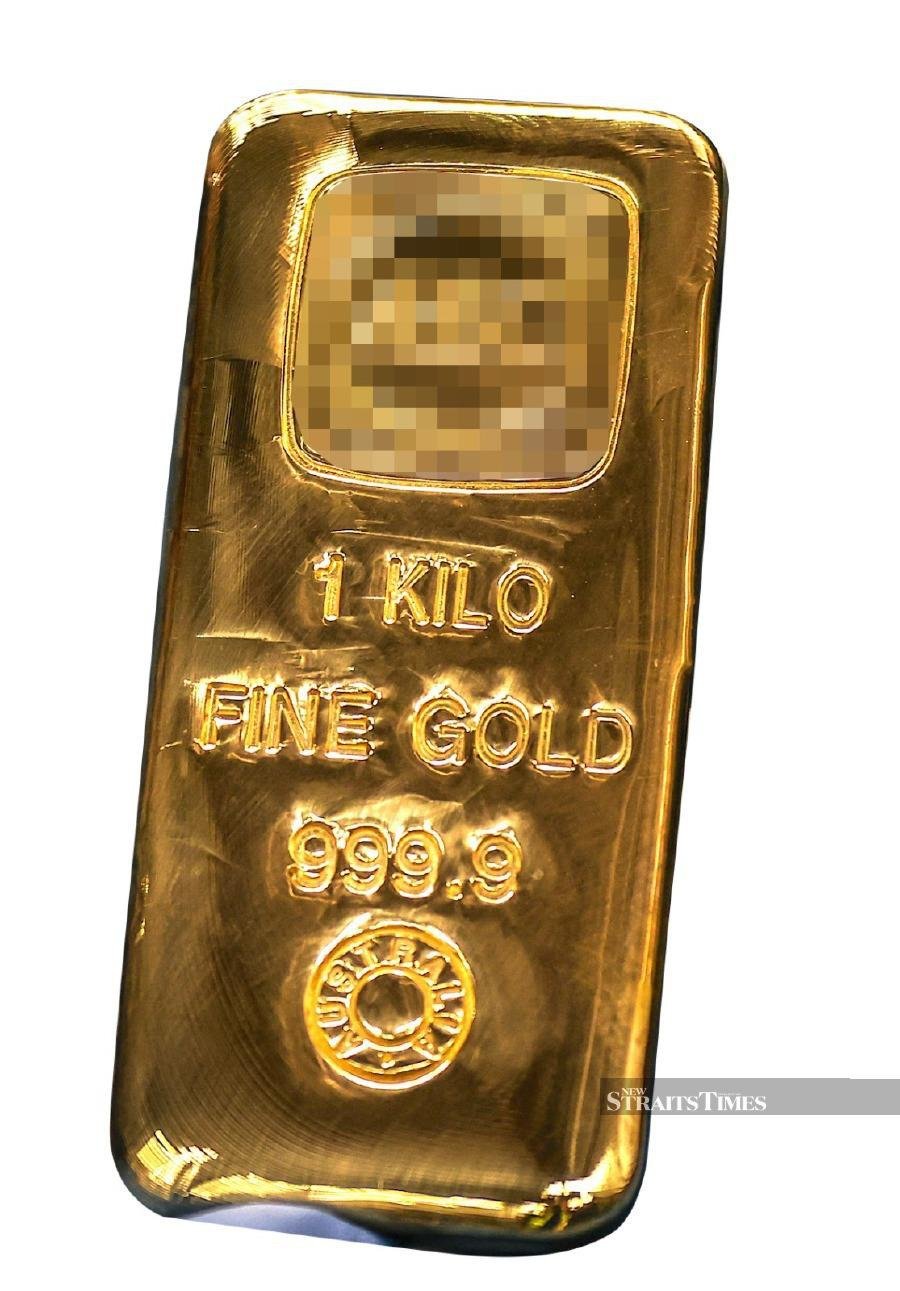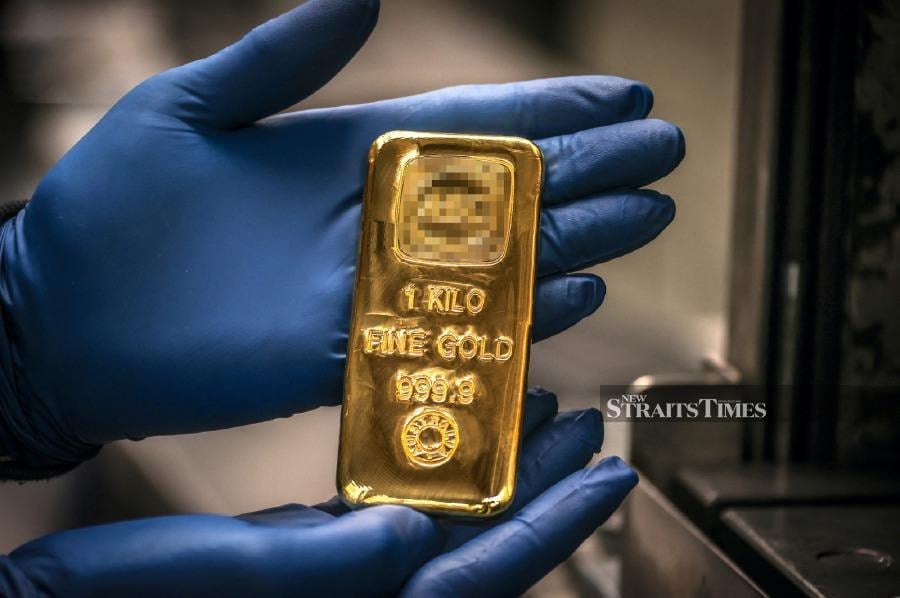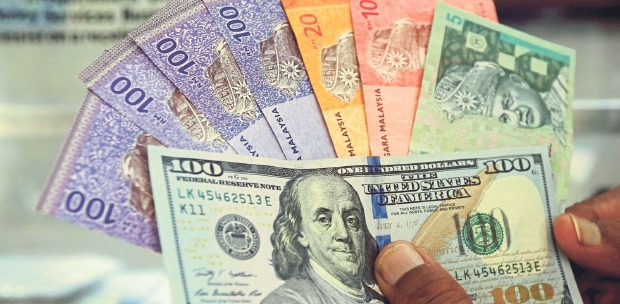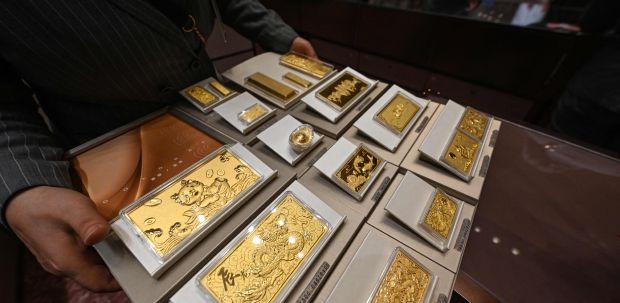KUALA LUMPUR: Safe haven, gold, is coming back in the spotlight as financial markets witness heightened uncertainty, particularly due to intensifying geopolitical tensions in the Middle East, notably centred around Israel and Gaza.
Escalating tensions have also heightened concerns about the trajectory of global oil price, raising questions about the future stability of energy-related investments.
Market analysts are advocating for strategic investments in gold, emphasising its historical stability and potential gains in times of conflict or peace.
Also, there is a prevailing consensus among market analysts to look towards safe-haven currencies such as the Swiss franc and yen.
Tradeview Capital Sdn Bhd founder and chief executive officer Ng Zhu Hann said gold had long been considered a safe haven asset due to its function as a store of value, even during economic crises and wars.

He said the average return on gold has been around 11 per cent over the past three decades.
"In the face of rising geopolitical tensions, putting some of your savings into gold is prudent. However, it should constitute only a portion of your overall portfolio. Do not overly allocate funds to this precious metal," Ng told Business Times.
Maybank Investment Bank Bhd (Maybank IB) said in a note yesterday gold was likely to do well in the event of an escalation in the Israel-Gaza war.
Moreover, gold is likely to do well in a situation of peace.
Considering that United States yields and the US dollar are at levels that are stretched, gold will likely do well when they both weaken.
"If we were to identify a single asset that would probably do well in all the three scenarios above, it would likely be gold," said the research firm.
Apart from gold, Ng said it might not be a wise decision to invest in currencies such as the US dollar or Swiss franc at the moment due to the poor performance of the ringgit.
"Of course, there are safe haven characteristics in both currencies. The US dollar is an internationally accepted legal tender and many central banks hold the greenback as their foreign reserves, while the Swiss franc's value lies in the country's historical neutral policy."But exchanging the ringgit at its current weak level to both currencies would expose investors to foreign exchange (forex) tail risk if the ringgit reverses its downtrend."
Ng said the yen remains one of the most fundamentally undervalued currencies at this point.
"The yen has a tough year and is one of the worst-performing currencies in the region, just like the ringgit. But when it comes to the forex risk, it's a bit different with the yen."In terms of forex tail risk, there is little impact and the yen also has a safe haven value. So, putting some funds in the short term into the yen is a wise strategy. "In the long run, it will still depend on the country's monetary policy and whether its dovish stance will remain," added Ng.
Capital Dynamics Asset Management Sdn Bhd managing director Tan Teng Boo said Japan was in a very tricky and, thus, risky position.
"The Bank of Japan may have to tighten its monetary policy and if so, this will create a global financial crisis."Also, Japanese properties are highly overvalued. Although the yen may look cheap, Japan's monetary policy is highly uncertain."
However, he pointed out that investing in a well-managed company was wiser than investing in gold.
"Gold does not have intrinsic value. It is a sentiment-driven asset. During uncertain times, people will seek safety in gold assets. However, they will turn to other assets when the situation improves," Tan said.
Independent economist Julian Suresh Sundaram said a rise in violence in the Middle East would not cause investors to move to safe-haven assets unless major powers got more actively involved."In this case, US yields will fall and the US dollar will gain.
Therefore, investors should consider buying US treasuries and the US dollar," he said.
On the yen, he pointed out that it would strengthen against other major currencies but not necessarily against the US dollar.
"If your base is in ringgit, then it is a good option to buy yen. If your base is in US dollars, then maybe not.""Meanwhile, gold, which moves in tangent to the US dollar, can weaken should the US dollar strengthen sharply," he said.
Rakuten Trade head of equity sales Vincent Lau said the recent policy changes and the low ringgit value, coupled with the rising oil price, were making Malaysia's stock market more attractive than traditional safe havens like gold.
"In this rapidly changing financial landscape, Malaysia emerges as a promising destination, offering investors a potential haven amid the global storm," he said.





